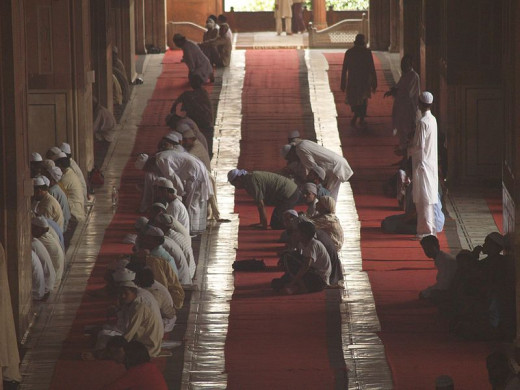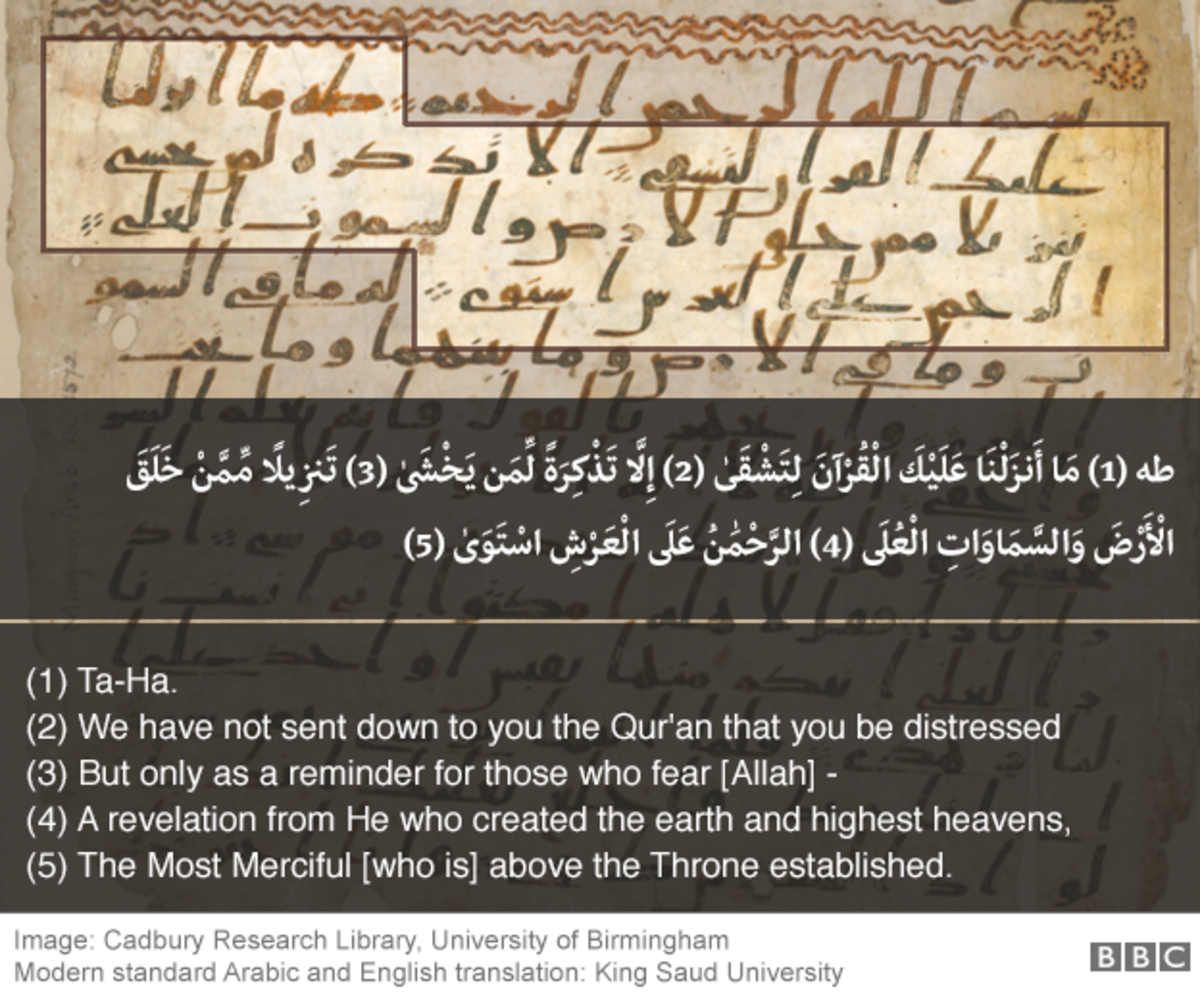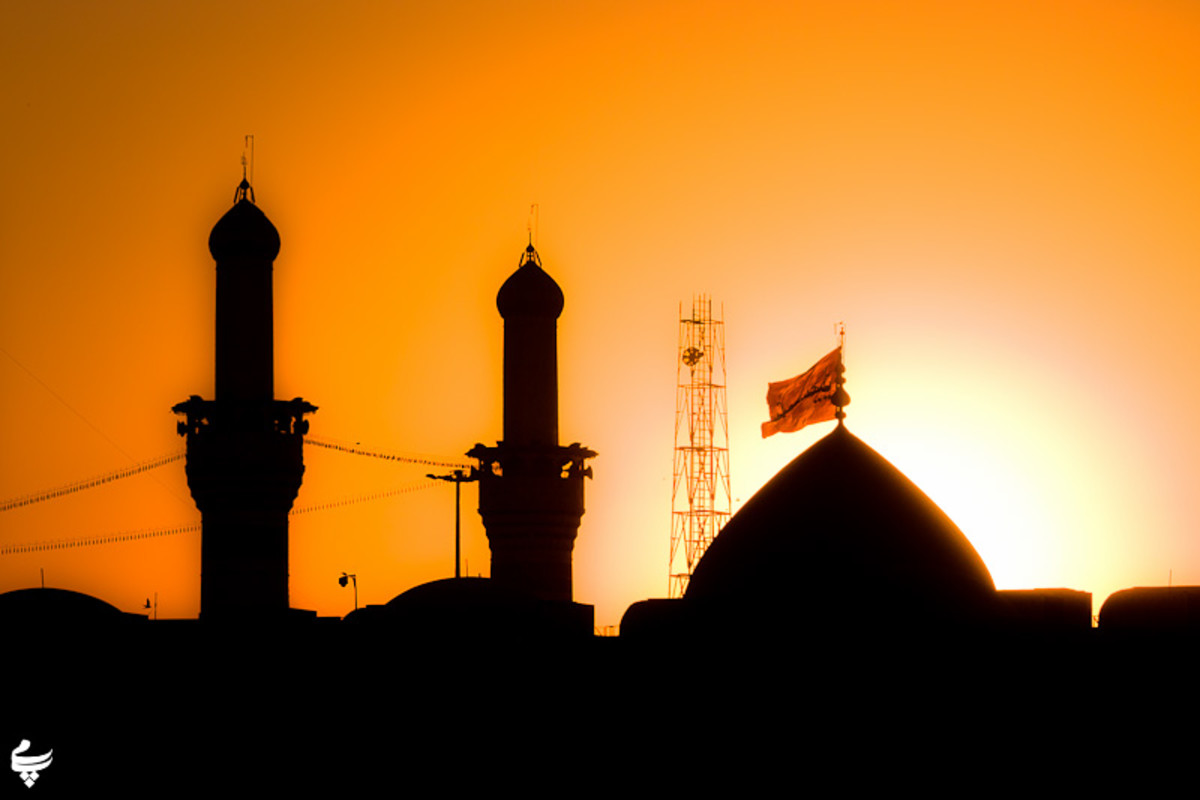What is the Spiritual Significance of Prayer within Islam?
The Importance of Prayer
For Muslims the concept of worship, known as ibadah, is central to their whole way of life. The Five Pillars, then, being the main acts of worship are not simply a matter of remembering God but are a whole attitude to life. Salah is regarded by most Muslim scholars as the most important of the practical pillars. Prayer does not only have spiritual value but also social significance.
The main purpose of prayer is to praise God. It allows Muslims to communicate with God. It is believed in Islam that God not only allows prayer but gently urges and invites it. Through prayer Muslims are able to converse with Allah when they are in congregation and isolation.

Related Hubs
- How Can the Revelation of the Qur'an be Seen to Contribute to its Status as a Miracle?
For many the Qur'an is the central miracle of Islam. How does the manner in which it was revealed support the Muslim belief that their holy book is indeed a miracle? - What are the Main Aspects of Ritual Prayer in Islam?
In Islam prayer five times a day is a ritual obligation and one of the Five Pillars. But what is actually involved in this important aspect of Muslim life and worship?
Why do Muslims Pray?
Initially the main reason why Muslims pray is because the Qur'an commands them to do so:
"Establish regular prayers- at the sun's decline till the darkness of the night. And morning prayer. And reading for the prayer And reading in the morning carry their testimony" Surah 17v 78
As with all aspects of Islamic life, Muslims try to follow the examples set by Prophet Muhammad. It was Muhammad, not the Qur'an who decided Muslims should prayer five times a day, after speaking to Allah on the Night Journey. This highlights the importance of the Hadith as an elaboration of the messages in the Qur'an.
Of course the Qur'an has not commanded Muslims pray for no reason. The psychological effect that prayer has is massive. It allows believers to strengthen their relationship with God through self sacrifice, spiritual awareness and spiritual cleansing.
Prayers and the Sun
I mentioned that Salah times are worked out in accordance with the sun but they do not fall exactly at sunset and rise etc. This is done deliberately to ensure Muslims do not get confused with worshipping the sun instead of Allah. Of course this would have been a more pressing issue for the early converts to Islam who had been polytheists and practised animism before Islam than it is for modern day Muslims.
Prayer and Submission
The word 'Islam' literally means 'submission' and for Muslims, submission to God is a fundamental belief and aim in Islam. Prayer is both symbolic and physical submission to God. The last three rakat are all symbolic of submission but actually performing the prayer is spiritual submission and an act of self sacrifice.
Note, Many Muslims would argue that prayer is refreshing and enjoyable and that rather than seeing it as a chore it is something they look forward to. So what does it mean to say it is a self sacrifice? As Salah must be performed five times a day, at set times it requires a very strict discipline and commitment. Salah times are in accordance with the sun so the prayer times differ from season to season but the first prayer is always early in the morning and the last one is always in the evening. Prayers then, require commitment throughout the entire day.
It is common for Muslims to have the word 'Ali' following their names which means 'slave of God'. The concept of Muslim's being slaves of God is evident in Salah- prayer should be both physically and mentally challenging.

Transcendence and Immanence
Within Islam there exists the paradoxical belief that God both transcends the universe but also that he is:
"...nearer to man than his jugular vein" Surah 50 v.16
The belief that God is both transcendent and immanent is expressed through prayer. As God is totally different and separate from humans he can only be approached by those who have purified themselves through wudu. Yet the fact that humans can communicate with God through prayer reinforces the concept of immanence:
"Prostrate yourself and draw near" Surah 96 v.19
Wudu, ritual washing, not only acts to actually cleanse the body but it also cleanses the spirit and prepares it for communication with Allah. The very act of prayer itself provides spiritual cleansing as well. Muhammad once said:
"If a man performs two cycles of prayer without the distraction of any worldly thought, all his previous sins will be forgiven" Hadith
The action of the first rakah, putting one's hands to one's ears, is symbolic of shutting out worldly thought.
Prayer and Awareness of God
Taqwa is the state of spiritual awareness- complete awareness of God. Salah helps a Muslim reach this state. Salah reminds Muslims of their insignificance in comparison with Allah's greatness. A Muslim acknowledges this with the words "Allahu Akbar" (God is most great) and by prostrating the most precious part of the body (your face) to the dust of the earth.
Salah also highlights God's oneness- there can be no intermediaries in prayer- only direct communication. God's omnipotence is symbolised by prostration. A Muslim prostrates to show their low position in comparison to God's all powerful one.
God's mercy and compassion is remembered through salah - Muslims believe God wishes to guide his creation and teach them right from wrong. He can do this by revealing himself to humanity either through direct revelation or prayer. The Qur'an was received through revelation but prayer provides a means by which one can receive personal guidance.
Muslims believe that they are God's vice regents who act on God's behalf. This can only be carried out if God first shows them how to act correctly. The first rakah is symbolic of listening to God's guidance.
Prayer and Jihad
In Islam there is the greater Jihad and the lesser Jihad. Jihad means to struggle or strive. The spiritual side of Islam is concerned with the Greater Jihad which is the inner and personal struggle to be a better Muslim. Throughout his life a Muslim will struggle to live as best he can and as Swar says :
"Learn to control his own bad desires and actions"
We have already established that ibadah is a complete way of life and therefore for a Muslim to live as best she can she must follow the Five Pillars as best she can. Thus salah has a large role to play in a Muslims struggle to be pleasing to Allah. As a practical form of worship salah acts to prevent hypocrisy. As salah cleanses the spirit it establishes maruf (right) and removes munkar (evil).
Sources
Watton, Victor W. A Student's Approach to Wiorld Religions: Islam
Yusuf Ali Abdullah, The Meaning of the Holy Qur'an
© 2014 TheRSTeacher









